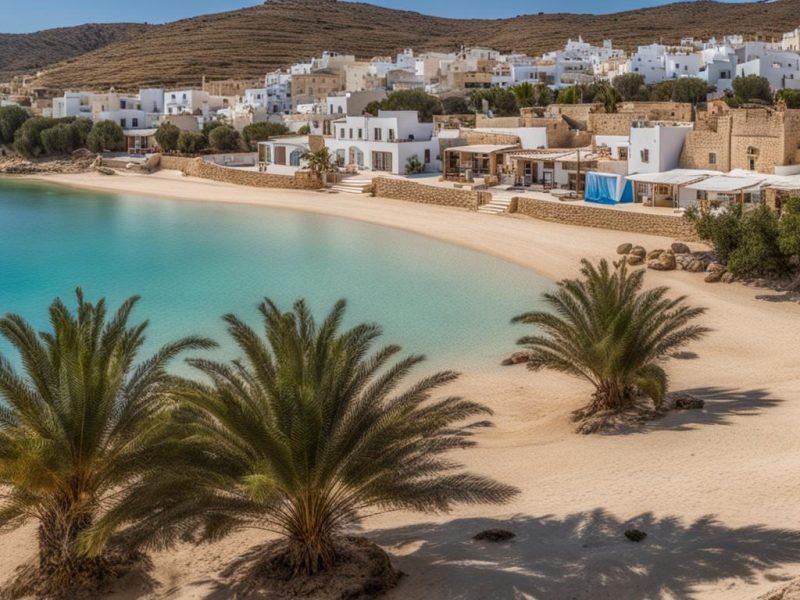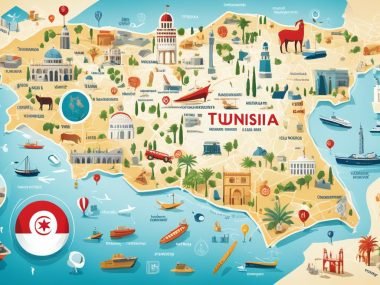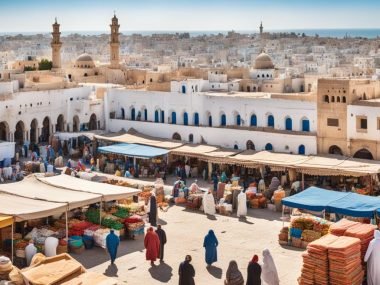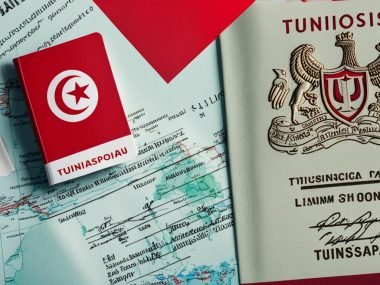As someone who’s always been intrigued by the alluring beauty of Tunisia, the thought of owning a piece of this Mediterranean haven naturally comes to mind. But the question arises, “Can Foreigners Buy Property In Tunisia?” I’ve dug deep into the laws on foreign property ownership in Tunisia to bring you an authoritative answer. The Tunisian landscape offers more than just an investment opportunity; it’s a treasure trove of rich culture and breathtaking vistas, seducing many to consider purchasing property in Tunisia as a non-resident. With a blend of legal procedures specific to the country, understanding property ownership for foreigners in Tunisia requires a meticulous look into the guidelines set forth by the local governance.
Fascinatingly, while Tunisia welcomes foreign investment in real estate, the fine print holds key insights. There are certain restrictions, especially concerning agricultural land, which non-Tunisians cannot lay claim to. However, residential and commercial properties remain within reach, provided the predefined protocols are meticulously followed. Embarking on this journey requires navigating through proper channels to ensure compliance with the laws on foreign property ownership in Tunisia, which, while intricate, open the doors to the possibility of owning your personal slice of Tunisian paradise.
Key Takeaways
- Foreigners have the opportunity to invest in Tunisian real estate with specific stipulations.
- Agricultural land ownership is off-limits to non-Tunisians, a crucial legal point to consider.
- Acquiring property in Tunisia involves a series of formalities and authorizations, particularly from regional governors.
- Engagement with experienced real estate professionals is advised to facilitate the purchase process for non-residents.
- Compliance with the Central Bank of Tunisia’s regulations is mandatory for property transactions involving non-resident foreigners.
Exploring the Appeal of Tunisia for Foreign Property Investors
Delving into Tunisia’s property market as a foreign investor means immersing oneself in a landscape filled with contrasts and opportunities. Marrying natural beauty with cultural wealth, Tunisia extends an invitation to those seeking more than just a return on investment; it offers a chance to be part of a lifestyle steeped in millennia of tradition and modern Mediterranean allure. Below, I unravel what makes this North African jewel a magnet for property investors from around the globe.
The Enchanting Tunisian Landscape: Mountains, Desert, and Sea
The allure of Tunisia, for me, lies in its majestic landscapes that promise both serenity and adventure. From the undulating Atlas Mountains presenting hiking and nature exploration opportunities to the vast expanses of the Sahara desert, perfect for those breath-taking sunset camel treks, Tunisia captivates the heart. Adding to this, the glistening waters of the Mediterranean Sea border Tunisia, offering an aquatic playground for water sports enthusiasts and beachgoers alike. This unique blend of topography isn’t just pleasing to the eye; it’s a pivotal factor enhancing property investment opportunities for foreigners in Tunisia.
Tunisian Culture: An Irresistible Blend of Hospitality and Cuisine
Stepping into Tunisia is like opening a storybook of cultures, where each page reveals another inviting chapter of the country’s history and traditions. Central to Tunisian culture is an unmatched hospitality that makes you feel at home. It’s in the fragrant air filled with the scent of jasmine, the bustling medinas, and particularly, in the food. Oh, the food! My palate never tires of the high-quality fresh fruits, vegetables, fish, and meat, all staples in the Halal food in Tunisia, often laced with that golden thread of the region – extra virgin olive oil. Such a rich cultural fabric not only delights tourists in Tunisia but also spins a compelling yarn for those considering acquiring real estate in Tunisia.
Why Tunisia’s Property Market Attracts International Attention
There’s a reason why Tunisia’s real estate stays on the radar for many international investors. It’s more than just the affordable cost of living or the treasure trove of high-quality fresh produce; it’s about the tangible sense of community and belonging. This feeling extends into the property market, a hub of activity with properties that range from quaint coastal houses to modern urban dwellings. It speaks to an investment steeped in the charm of the old world yet fully outfitted for the modern resident. And with Tunisia holding open doors for foreigners, the process of acquiring real estate in Tunisia is attainable, inviting a growing number of property connoisseurs to call this slice of the Mediterranean their second home.
Understanding Legal Framework for Foreign Property Ownership
Buying real estate as a foreigner in Tunisia is a topic that ushers in various questions about the legalities involved. My investigation into this subject has led me to unravel the somewhat complex yet navigable network of legislation that oversees foreign property investment in this vibrant country. Tunisia, with its blend of Mediterranean charm and North African heritage, presents a narrative woven with regulatory tapestries that dictate who can own what and under what conditions.
Drawing upon my research, it’s imperative to grasp the necessity of governmental approval in the property purchase equation. Embarking on a real estate investment in Tunisia as a foreigner means you’re entering a realm where bureaucratic processes are not just formalities but prerequisites for property ownership. I’ve learned that the consent from the governor of the region has a pivotal role in granting foreigners the right to hold property.
The creation of a preliminary deed of sale stands as a cornerstone in the journey to ownership. This document not only asserts a serious intent to purchase but also outlines a defined period for obtaining the necessary authorization. It’s much like setting the stage where the drama of buying and selling will unfold, with each act carefully planned to ensure a happy ending.
It isn’t the mountains ahead to climb that wear you out; it’s the pebble in your shoe. Similarly, in the legal landscape guiding real estate investment for foreigners in Tunisia, ignoring critical contractual elements, such as the deposit refund clause, might just be that pebble.
In practice, requests for authorization are seldom turned down when due diligence is observed. However, their importance cannot be overstated. Such procedural steps lead up to the all-important registration in the Revenue Agency and Land Registry, a testament to the property changing hands, metaphorically, and legally. I encourage prospective investors to view these steps as a rite of passage, one that ensures the legitimacy and security of their Tunisian real estate acquisition.
After walking through the legal pathways, I’ve come to recognize the paramountcy of professional assistance. Without the guiding hand of a seasoned real estate agent or a knowledgeable attorney, the odyssey of acquiring property could quickly turn labyrinthine.
My foray into the nitty-gritty of property ownership in Tunisia for foreigners has cemented my belief: while the process may appear daunting, comprehending and adhering to the legal framework is the key to unlocking a world of Mediterranean splendor for those seeking to dive into the Tunisian real estate market.
The Role of the Tunisian Central Bank in Real Estate Transactions
As I further my exploration into the intricacies of property investment in Tunisia for non-residents, my attention shifts to the pivotal role played by The Central Bank of Tunisia. This esteemed institution not only acts as a monetary authority but also looms large in overseeing real estate transactions in this North African nation. For folks like myself, keen on planting financial roots in Tunisian soil, understanding the relationship between property purchases and central banking regulations becomes undeniably important.
Let’s delve into the specifics. When it comes to setting up a bank account in Tunisia for non-residents, the process is woven tightly with currency regulations. Here, the Central Bank serves as a gatekeeper, ensuring that all transactions align with national and international financial practices. For investors hailing from overseas, this is your first checkpoint.
Opening Bank Accounts and Currency Regulations for Non-Residents
Imagine standing at the threshold of a new venture, ready to claim your stake in Tunisian real estate. But before you can march forward, you’ll need an account where your financial seeds can be sown. This isn’t just any account; it’s one that adheres to the Central Bank’s stringent currency norms. Whether it’s foreign currency or convertible dinars, each transaction linked to your property dream will pass under the watchful eyes of The Central Bank of Tunisia.
The Importance of Investment Statements in Property Purchases
The narrative further thickens with the essential written statement of investment from the Central Bank. This document is the storyline that rationalizes the movement of your funds and it’s a compelling read for anyone involved in real estate transactions in Tunisia. Picture this statement as a beacon that guides the funds safely to their intended port of investment, ensuring transparency and building trust between the buyer, seller, and the nation’s financial guardians.
Missing out on this vital piece of paperwork? That’s an uninvited twist in our investment tale. The absence of a Central Bank’s investment statement could mean a knotted process and entangled ownership rights, complicating what should otherwise be a clear path to property acquisition. Holding this statement in your hand is akin to clutching the key that unlocks the door to safe and recognized property transactions within Tunisia’s vibrant shores.
Regional Investment Opportunities: Spotlight on Sfax, Tunisia
Turning my gaze towards Sfax, Tunisia’s second economic center, I uncover a landscape ripe with possibilities for those considering investing in Tunisian real estate as a foreigner. Booming with industrial activity and academic vibrancy, Sfax enchants foreign investors seeking strategic investment locations rooted in economic robustness and cultural depth.
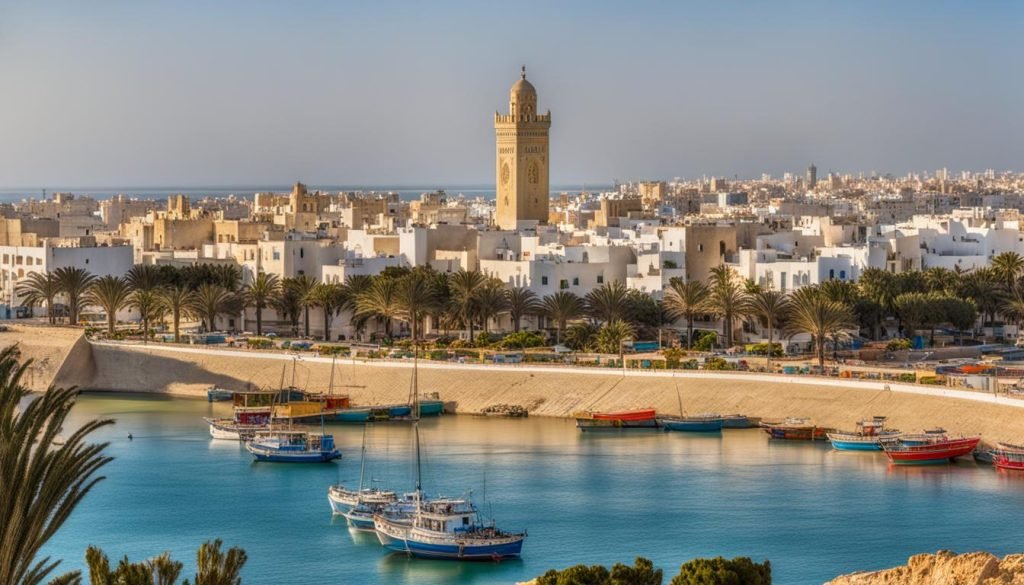
Sfax doesn’t just boast its title as Tunisia’s second largest city—it’s also a beacon for diverse industries. These range from textiles to food processing and from mechanical engineering to the chemicals sector. Each of these industries underscores the city’s position as a critical hub in Tunisia’s economy and makes Sfax an investment location that promises growth and sustainability.
As a city pulsating with economic life, Sfax extends an invitation to foreign investors in Sfax to partake in its growth story, peppered with market potential and entrepreneurial spirit.
Additionally, Sfax is the heartland of Tunisia’s olive oil production, commanding an impressive 40% share nation-wide, with almond oil production trailing not too far behind at 30%. The ramification of such agricultural prowess is a stable economic landscape—one that provides a fertile ground for both local and international investors.
Contributing to the fabric of Sfax’s potential is the city’s commitment to education, housing over 20 higher education institutions bustling with a collective student population of approximately 43,000. It’s this educational ecosystem that perpetuates innovation and produces a qualified workforce, further solidifying why Sfax is nicknamed Tunisia’s second economic center.
Aiding investors navigate through the complexities of property acquisition in Sfax is a network of legal and real estate services. Expertise is at hand to assist in understanding the nuances of the local market and in ensuring a smooth and compliant property purchase process.
Truly, investing in Sfax as a key location within Tunisia not only signifies a financial transaction but also a commitment to being part of a thriving and forward-moving community, making it a magnet for discerning investors from across the globe.
Conclusion
After delving deep into the real estate market in Tunisia, I stand before the vast landscape of opportunities and limitations for foreigners wishful of carving out their space under the Tunisian sun. Property ownership for foreigners in Tunisia, as I’ve unwrapped through this exploration, is not just about signing deeds and trading keys; it’s a dance with legalities, a respectful nod to the cultural and economic environment that shapes this vibrant nation.
Summarizing the Property Buying Process for Foreigners in Tunisia
The purchasing process for real estate as a foreigner in Tunisia requires a focused understanding of the country’s property laws. A harmony between the vision of owning a Mediterranean escape and the practical steps of obtaining governor approvals, navigating restrictions, and securing validations from the Central Bank of Tunisia. My journey through this intricate process has affirmed that acquiring the support of professionals is not merely a suggestion but a necessity for ensuring a seamless transaction.
The Potential and Limitations of Investing in Tunisian Real Estate
Opportunities in the Tunisian property market beckon with open arms to those outside its borders, offering a labyrinth of roads—some leading to quaint coastal homes, others to modern high-rises with views of sprawling cityscapes. Yet, just as there are sun-drenched balconies to bask on, there are shadowed alcoves to navigate, namely the limitation of investing in Tunisian real estate that is tied to agricultural use. Understanding these contours—the luminous prospects and the shaded constraints—helps me, and can aid others, in measuring the influence and confines of such an investment. Essentially, those wishing to pioneer into this market must approach with a well-charted map of compliance and anticipation, ready to embark on a journey that pays homage to Tunisia’s rich culture and welcoming spirit.

